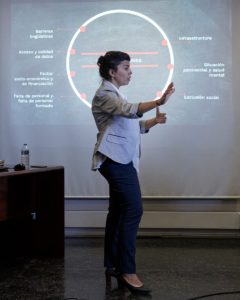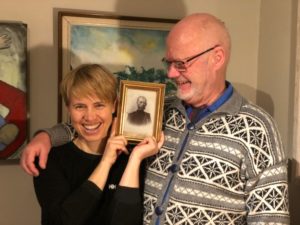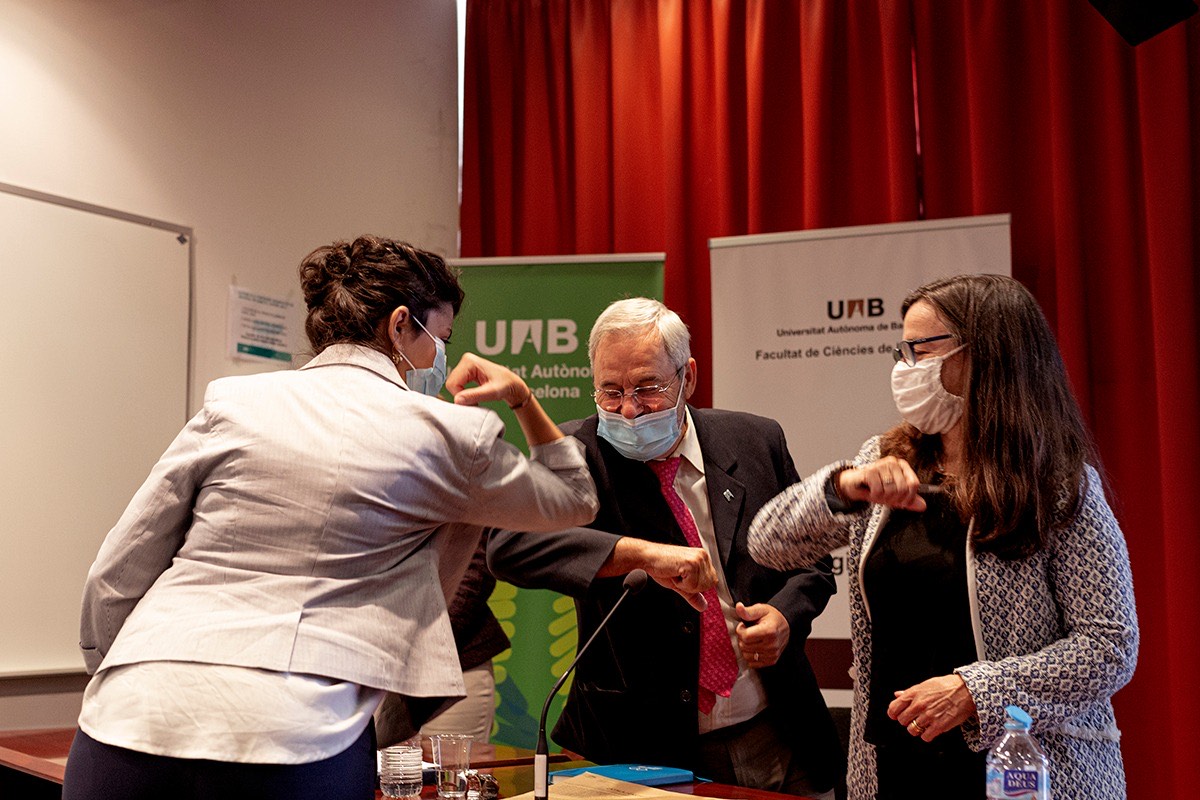Over the last semester, three members of IMER Junior Scholar Network have handed in and defended their dissertations. The focus of their research covers a broad range of issues within migration and ethnicity-related questions: from how mobile devices can be used to rebuild education during conflict situations, to immigrants’ experiences with growing old in Norway, and men’s choices when it comes to changing or keeping their surnames in romantic relationships.
We are very proud of our fellow IMER members and congratulate them on the completion of their dissertations!

Mirey Alfarah defended her dissertation at the Autonomous University of Barcelona on the 28th of September. The thesis was about “The role of ICTs in rebuilding education in countries affected by armed conflict – the Syrian case.” The main objective of her research was to identify innovative uses of existing technologies in order to overcome the obstacles and barriers preventing children affected by the armed conflict from accessing education. In the words of one of the committee members, it was a thesis with high social impact. For more information about Mirey’s research, see here.
On the 4th of December, Katrine Mellingen Bjerke defended her dissertation at the University of Bergen, Institute of Sociology. Her dissertation is titled “Transnational Ageing in Place. The Case of Pakistani and Polish Migrants in Norway” and examines Pakistani and Polish immigrants’ experience with growing old in Norway. By comparing these two cases, Katrine explores issues related to receiving care, the meeting with the welfare-state and questions concerning identity and belonging. More information about her dissertation can be found here.
 Finally, on the 11th of December, Line Førre Grønstad defended her dissertation at the University of Bergen. The dissertation is titled “Community and Individuality. Gendered Choices in Surname Among Norwegian Men inHeterosexual Relationships.”In the dissertation, Line examines how men who keep their surnames and men who changes them think about this decision. She found that the most important issue for men who changed their names was the surnames function in creating a new nuclear family. Men also changed their surnames out of concern for rare names and surnames that were connected with family histories. Neither men who kept their surnames nor men who changed it were concerned with gender equality. Line also found that feelings of identity played a central role in the choice. For more information about Line’s dissertation, see here.
Finally, on the 11th of December, Line Førre Grønstad defended her dissertation at the University of Bergen. The dissertation is titled “Community and Individuality. Gendered Choices in Surname Among Norwegian Men inHeterosexual Relationships.”In the dissertation, Line examines how men who keep their surnames and men who changes them think about this decision. She found that the most important issue for men who changed their names was the surnames function in creating a new nuclear family. Men also changed their surnames out of concern for rare names and surnames that were connected with family histories. Neither men who kept their surnames nor men who changed it were concerned with gender equality. Line also found that feelings of identity played a central role in the choice. For more information about Line’s dissertation, see here.
In the first few months of 2021, at least 2 other members will face the same challenge of defending their dissertations. Good luck and fingers crossed! We will keep you posted.
Blogpost written by Andrea Vige Grønningsæter

Be First to Comment